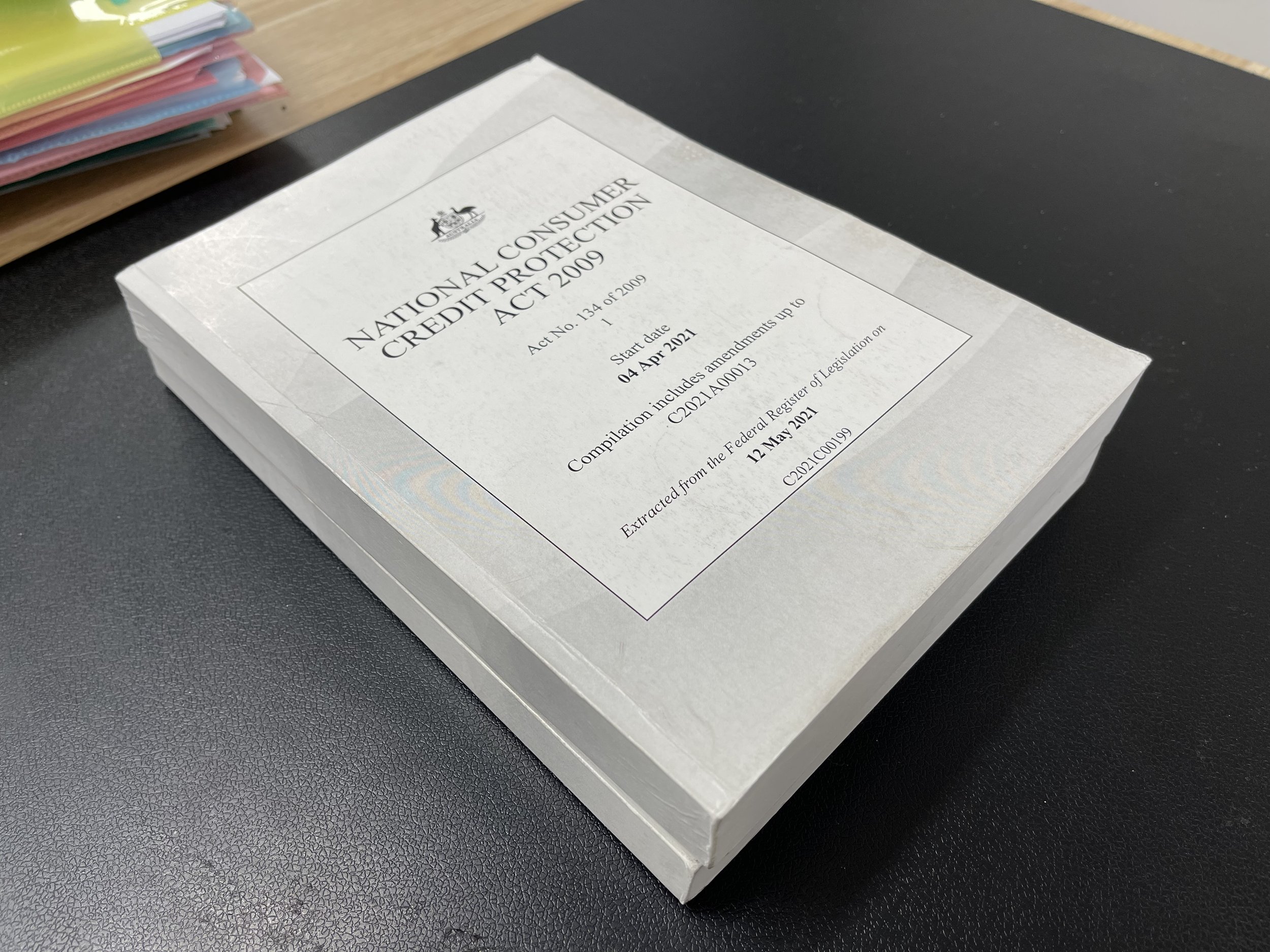What are the responsible lending obligations?
If you hold an Australian credit licence (“ACL”) or you are the credit representative of an ACL holder, you must comply with the responsible lending obligations (the “RLOs”) in the National Consumer Credit Protection Act 2009 (Cth) (the “NCCP Act”).
There are two main parts to the RLOs. The first part is about disclosure of information to consumers. The second part is about the suitability of credit provided to consumers. When people talk about the RLOs, often they are only referring to the second part, but the disclosure requirements should not be forgotten. There are some other obligations under the RLOs which we will also discuss in this article.
Disclosure
The consumer must be given certain disclosure documents. The disclosure documents include:
a credit guide;
a quote for providing credit assistance (“credit quote”); and
a credit proposal disclosure document (or lease proposal disclosure document, in the case of consumer leases).
The NCCP Act and regulations set out the required content of these documents.
The documents that must be given depend on the type of credit activity that you engage in. For example, the credit quote and the credit proposal disclosure document only apply if you are providing credit assistance (such as a broker) rather than providing the credit yourself.
A credit representative of an ACL holder is required to have its own form of credit guide.
The NCCP Act specifies when the disclosure documents must be given to the consumer. If you are the credit provider, the credit guide must be given as soon as practicable after it becomes apparent to you that you are likely to enter a credit contract with the consumer.
In the case of a credit assistance provider, the credit guide has to be given as soon as practicable after it becomes apparent to you that you are likely to provide credit assistance, while the credit quote must be given before you provide credit assistance, and the credit proposal disclosure document must be given at the same time that credit assistance is provided.
As well as these disclosure documents, for certain kinds of products (home loans and credit cards), the RLOs require that “Key Facts Sheets” be provided or made available.
A credit provider licensee must ensure that the application form for a credit card contract includes a Key Facts Sheet for the contract, and the credit provider must not enter into a credit card contract unless this is done. The content of the Key Facts Sheet is set out in regulations.
For credit providers who offer standard home loans, the RLOs require that the website of the credit provider includes the capacity to generate a Key Facts Sheet about a standard home loan. Again, the specified content of this Key Facts Sheet can be found in the regulations.
Suitability of loans
As a credit provider, the RLOs require that you must only enter into a credit contract if the credit contract is not unsuitable for the customer, and you must not increase the credit limit of a credit contract if the increase would be unsuitable for the consumer.
Note that the test is “not unsuitable” rather than “suitable”. What’s the difference? “Not unsuitable” is a lower threshold to meet for the licensee. Rather than having to find a loan that is positively suitable for the consumer, the licensee only has to exclude loans that are not suitable.
If you are providing credit assistance, the RLOs require that you do not suggest that the consumer apply for (or assist the consumer to apply for) a loan or loan increase with a particular credit provider if the loan or increase would be unsuitable.
The Australian Securities and Investments Commission (“ASIC”) has published a Regulatory Guide RG 209 which sets out ASIC’s views on the RLOs. It is a good place to start to understand the steps you can take to minimise the risk of non-compliance with the RLOs.
The RLO suitability obligations involve:
making reasonable inquiries about the consumer’s financial situation, and the requirements and objectives of the consumer;
taking reasonable steps to verify the consumer’s financial situation;
making a preliminary assessment (if you are providing credit assistance) or final assessment (if you are the credit provider) about whether the credit contract or increase is not unsuitable for the consumer; and
if a consumer requests it, providing the consumer with a written copy of the preliminary assessment or final assessment (as relevant).
Special provisions for credit card contracts
Besides disclosure and loan suitability requirements, the RLOs also include some other obligations.
For credit card contracts, there are rules which prohibit credit limit increase offers and other measures which are designed to stop misuse of credit cards by consumers.
Special provisions for short-term and small amount credit contracts
The RLOs also prohibit short-term credit contracts and mandate warning disclaimers for licensees that offer small amount credit contracts.
Positive credit reporting
Recently the RLOs were amended to include mandatory positive credit reporting obligations by certain credit providers. In the past, credit reporting only included “negative” information such as defaults. Positive credit reporting involves providing “positive” information such as repayment details.
Mortgage brokers and intermediaries
Another set of obligations relating to mortgage brokers and intermediaries has now been tacked on to the RLOs. These new provisions impose a “best interests” obligation on licensee mortgage brokers and their credit representatives, so that the broker or representative must act in the best interests of the consumer. They also ban so called “conflicted remuneration” being paid to or received by mortgage brokers and mortgage intermediaries.

